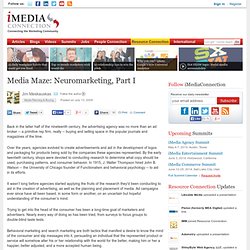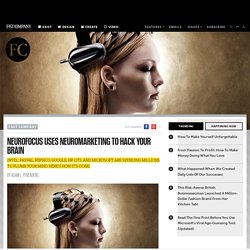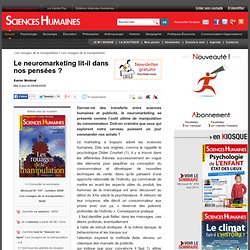

This Is Your Brain on Politics. You Love Your iPhone. Literally. But should we really characterize the intense consumer devotion to the iPhone as an addiction?

A recent experiment that I carried out using neuroimaging technology suggests that drug-related terms like “addiction” and “fix” aren’t as scientifically accurate as a word we use to describe our most cherished personal relationships. That word is “love.” As a branding consultant, I have followed Apple from its early days as a cult brand to its position today as one of the most valuable, widely admired companies on earth.
A few years back, I conducted an experiment to examine the similarities between some of the world’s strongest brands and the world’s greatest religions. Using functional magnetic resonance imaging (fMRI) tests, my team looked at subjects’ brain activity as they viewed consumer images involving brands like Apple and Harley-Davidson and religious images like rosary beads and a photo of the pope. So are our smartphones addictive, medically speaking? My best advice? Media Maze: Neuromarketing, Part I. Back in the latter half of the nineteenth century, the advertising agency was no more than an ad broker -- a primitive rep firm, really -- buying and selling space in the popular journals and magazines of the time.

Over the years, agencies evolved to create advertisements and aid in the development of logos and packaging for products being sold by the companies these agencies represented. By the early twentieth century, shops were devoted to conducting research to determine what copy should be used, purchasing patterns, and consumer behavior. In 1915, J. Walter Thompson hired John B. Watson -- the University of Chicago founder of Functionalism and behavioral psychology -- to aid in its efforts. It wasn’t long before agencies started applying the fruits of the research they'd been conducting to aid in the creation of advertising, as well as the planning and placement of media. Trying to get into the head of the consumer has been a long-time goal of marketers and advertisers. In 2003, Dr. Neuromarketing: separating fact from fiction. NeuroFocus Uses Neuromarketing to Hack Your Brain. Photo by Gene Lee A.K.

Pradeep knows what you like and why you like it. Take the sleek, slick iPad. Ask Mac lovers why they adore their tablet and they'll say it's the convenience, the touch screen, the design, the versatility. But Apple aficionados don't just like their iPads; they're preprogammed to like them. Pradeep is the founder and CEO of science-based consumer-research firm NeuroFocus, a Berkeley, California-based company wholly owned by Nielsen Holdings N.V. that claims to have the tools to tap into your brain (or, as Woody Allen called it, "my second favorite organ"). On this particular spring day, he's in New York to offer a presentation at the 75th Advertising Research Foundation conference.
Speaking with the speed and percussive enunciation of an auctioneer, Pradeep is at the conference today to introduce his company's latest innovation: a product called Mynd, the world's first portable, wireless electroencephalogram (EEG) scanner. NeuroFocus CEO A.K. Orange cheese dust. Neuromarketing : Lire dans le cerveau. XEnvoyer cet article par e-mail Neuromarketing : Lire dans le cerveau XEnvoyer cet article par e-mailNeuromarketing : Lire dans le cerveau Une évolution, pas une révolution Image à résonance magnétique fonctionnelle (IRMF), agence française de sécurité sanitaire des produits de santé (AFSSAPS), neurosciences, analyses cognitives, marketing sensoriel.

On le dit dangereux, révolutionnaire ou orwellien. Les marketeurs en rêvent, la science y travaille. Protocole complexe et coûteux Réaliser des études neuromarketing n'est en effet pas à la portée du premier venu, et le chemin jusqu'au scanner est semé d'embûches. Le neuromarketing lit-il dans nos pensées ? - Xavier Molénat, article Psychologie.
Dernier-né des transferts entre sciences humaines et publicité, le neuromarketing se présente comme l’outil ultime de manipulation du consommateur.

Doit-on craindre que ceux qui explorent notre cerveau puissent un jour commander nos achats ? Le marketing a toujours adoré les sciences humaines. Dès ses origines, comme le rappelle le psychologue Didier Courbet (1), il y a trouvé dans les différentes théories successivement en vogue des éléments pour peaufiner sa conception du consommateur et développer de nouvelles techniques de vente. Alors qu’ils partaient d’une approche rationnelle de l’individu, qui commande de mettre en avant les aspects utiles du produit, les hommes de la mercatique ont ainsi découvert au début du XXe siècle la psychanalyse. À rebours de leur croyance, elle décrit un consommateur aux prises avec son ça, « réservoir des pulsions profondes de l’individu ».
Les neurones du Coca-Cola Des applications vagues.